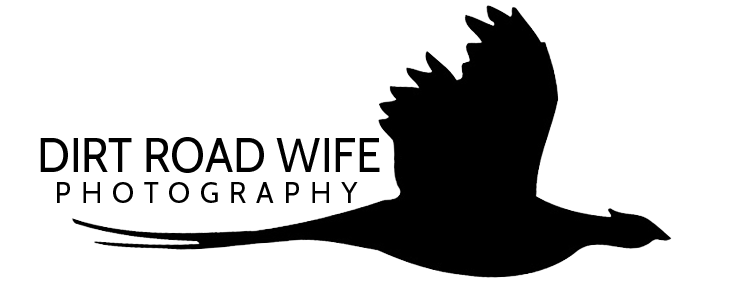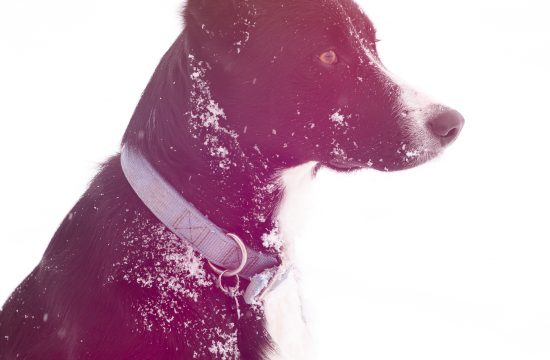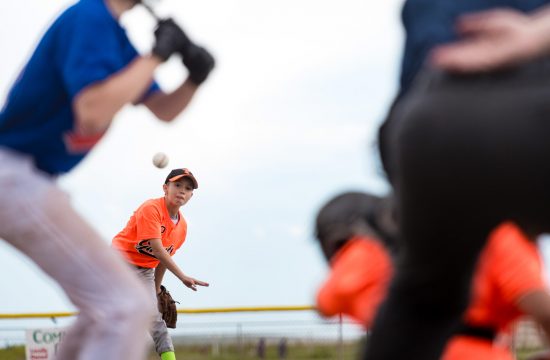
August 29, 2018 / photography writing
Raised in a Barn: 5 Life Lessons from Showing Livestock and Horses
I spent three days documenting the Wyoming State Fair as a photographer this summer. Three days of beef shows, barn scenes and family dynamics. It made me nostalgic for my own fair days and had me pondering just what made it so special.
I don’t often stop to think about it but growing up showing horses, competing in rodeos and raising livestock helped build my character and strengthen my relationships, both as a kid and even today as an adult. It was an amazing way to grow up, for sure, but it’s also blessed me tenfold in the lessons it taught me.
So just what kind of life lessons does this “country lifestyle” teach you? What does it still have to offer kids these days? Here’s what I learned, sometimes the hard way, from a life in barns and on backroads…
I learned the world didn’t revolve around my needs.
It didn’t matter how hungry I was. My animals ate first. It didn’t matter how cold outside it was. My animals still needed fed. It didn’t matter if there were six dozen other cool things going on in town. There were chores to do first. If my dad and my FFA advisors and my riding coach taught me anything, it was that critters came first. It’s a simple enough rule, but its effect on me was profound. Being responsible for other living creatures at a young age taught me responsibility and empathy made me realize it wasn’t just about me.
We live in a very kid-centric world. Our schedules, our activities, sometimes even our very circle of friends revolves around our kids. So it’s no wonder they act like the center of the universe…we parents put them in the center of that very small universe. But having animals that depended on me for their food, water and well-being forced me to look beyond my own needs.
I can remember one time complaining about how hot and sweaty I was after a long day showing horses and how I just wanted to stop somewhere and eat dinner.
“Can’t we just stop on the way home?” I asked. “The horses can stay in the trailer while we eat our pizza. We won’t be long.”
“Imagine how your mare feels,” my dad said. “She carted you around the whole day and stood in the hot sun, too. Don’t you think she deserves to be taken care of for taking care of you all day?”
Studies show that kids who understand others’ points of view are more popular, better adjusted and even have healthier peer relationships. I learned to see that other point of view, gaining responsibility, compassion and empathy for my animal, and in turn, those around me.
I learned about family and community.
When I was a teenager, there was no being embarrassed of my parents. I couldn’t have shunned them in public, even if I had wanted to, because I needed them to do all the things I loved doing. I needed my dad to haul me to horse shows and my mom to drive me to the barn to ride and I loved having them both there to cheer me on.
I actually volunteered my parents as chaperones for dances and activities.
Ignoring my parents or acting like they didn’t exist simply wasn’t an option. We were in this thing together. But so were all the other kids and their parents. We got to know other kids and parents and soon I had a whole community looking out for me.
A study published in the Journal of Family Issues dealt with the concept of teens “mattering” to the world. The study, led by Brown University sociologist Gregory Elliott, showed that adolescents who believe they matter to their families are less likely to threaten or engage in violence against family members. According to the study, mattering is composed of three factors – awareness, importance, and reliance.
I knew without one shred of doubt that I mattered to my parents. And to our greater community of “country” friends. This extended network of adults demonstrated that we kids were important by engaging in our activities. They invested time and resources into us, and we were grateful for their support.
Those daily interactions not only strengthened the relationships I had with my parents, but it also taught me about interacting with other adults. I forged age-appropriate relationships with other adults and had to learn to talk to them, listen to them and follow their rules. Each new adult in my life helped me grow in my character.
I learned how to lose.
In every class, from showmanship and market hogs to pole-bending and dairy judging, there were winners and there was everyone else. There weren’t participation trophies or made-up categories to make everyone feel good. If you had the fastest time, you won the trophy. If you didn’t, well…get faster.
It was the same thing showing livestock. If your animal didn’t make the grade, you got cut and you were asked to leave the ring. One time I didn’t even make it a full lap of the show ring before my white pig and I were shown the gate!
Kids need to learn to lose. The skill of losing and moving on is an important one. It’s one I learned a lot. There were many classes and shows where I didn’t come home with the blue ribbon, or even any ribbons at all. I was a crazy competitive kid, so not finishing on top was disappointing. There was plenty of grumbling and a few tears along the way. But losing taught me how to cope with that disappointment and how to channel it into something useful, like determination or grit or resiliency.
As kids grow up and turn into adults, they are going to have to deal with all kinds of setbacks and upheavals that are way more life-changing than not getting the high point for the show that day. So when we get practice at losing, we’re better equipped to actually deal with those true emotional crisis down the road.
I built my future character.
Last week, a friend of mine explained that she was wearing a boot on her foot because she didn’t let go of the halter and a heifer drug her halfway across the pasture and crashed her into a fence in their yard, cutting a tendon in her foot.
“But what are you taught when you’re a kid?” she said to us. “Don’t let go.”
Here she was, twenty some years removed from showing cattle as a 4-H and FFA member and she’s still not letting go.
I got kicked, bit, run over, bled on, spit on, peed on and puked on by my animals. I hauled hay, bags of grain, wheelbarrows and buckets of water in the hot and the cold and every temperature in between. If losing teaches you emotional toughness, the sheer act of raising animals teaches you physical toughness.
The work made me tough, even strong. Physical labor and struggle gives kids a sense of accomplishment. They see a tangible result for their efforts and its rewarding. It doesn’t matter what that work really is…meaningful, physical work is less about a specific task and more about the habits those hours of struggle teach. As one article I read suggested, “The effort involved and the struggles, once overcome, become the scar tissue of future character.”
I learned there are no shortcuts to true success.
You don’t become a champion overnight. It takes months of training and working, sometimes even years, to get where you want to be and take home that gold buckle. There simply isn’t an Easy button that fast tracks you the champion drive. The victory comes in the grind.
I’m as guilty as the next person about using technology to provide me with instant gratification (Amazon prime anyone?). I get grumpy waiting for my coffee to brew, I hate waiting at a stop sign for traffic and don’t even get me started on our slow rural Internet.
But when it comes to my work life? My business? I know that the work I do today helps me build the wildly successful business I want in the future. I have to pay my dues, grind it out now and one day, the benefits will come back to me.
I learned this by having to slog it out in the practice pen and in the barn to win in the showring. I learned that the foundation of greatness is built day by day, week by week. I know how to develop a plan, work toward it and achieve it. Livestock and horses and training any kind of animal teaches you that.
Farm living is the life for me…
I don’t know if my own daughter will choose to follow in the footsteps of her parents and raise livestock or show horses. She’s learning a lot of those lessons simply by living on a bird farm and helping her daddy out when required.
But I hope she does. Because it’s an amazing way to spend your childhood and it paves the way for adult success.
Your kids might not have been born in a barn. But they’ll be better kids and adults if you can get them there as fast as you can.
–Teresa









